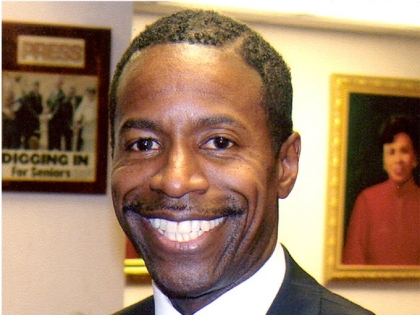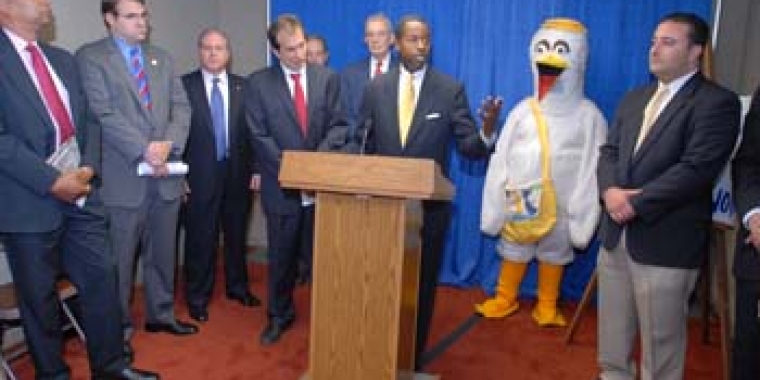
Senate Passes High Speed Rail Legislation
Malcolm A. Smith
July 7, 2010
-
ISSUE:
- Transportation
Fueling the Economy of Tomorrow
(Albany, NY)- Legislation (S8268/Smith) that will create a temporary 11 member High Speed Rail Planning Board within the Department of Transportation (DOT), sponsored by Senate President Pro Tempore Malcolm A. Smith passed the Senate.
“This is an exciting day and an important step towards implementing the vision of High Speed Rail in New York State,” Senate President Pro Tempore Smith said. “This legislation will bring together experts, stakeholders and the public to address the critical issues to design, finance, build, operate and maintain a high speed rail system that will bring significant economic development opportunities to the State of New York.”
The Planning Board would advise the DOT on the implementation and the financing of a high speed rail system for the State. In addition, the Board would make recommendations as to the organizational structure that should ultimately oversee the high speed rail project and operate it.
This legislation will:
· Establish the new board, which would consist of the Commissioner of the DOT, the President of the Metro North Railroad, and seven members appointed by the Governor, with two on the recommendation of the Temporary President of the Senate, two on recommendation of the Speaker of the Assembly, and one each on recommendation of the Minority Leaders of the Senate and the Assembly.
· Establish the qualifications for members of the Board and require that members be appointed within 30 days.
· Require the board to meet publicly at least quarterly.
· The Governor shall designate an Executive Director to assist the Board.
Powers and duties of the Board would include:
· Providing DOT with input on environmental impact studies necessary for planning a high speed rail system and development of a transportation investment program.
· Collecting public opinions, including holding at least six public hearings across the State.
· Evaluating all available high speed rail systems and making appropriate recommendations for the State.
· Researching options with respect to agreements with private entities necessary to permit high speed trains and making recommendations to DOT.
· Reporting to the Governor and the Legislature, within two years, on a fully developed and consensus plan for the financing of the plan and the organizational entity that should oversee the State’s high speed rail program.
“Without a plan, high speed rail in New York won’t make it out of the station. We need a viable, realistic approach that incorporates the best of the public and private sectors. Each and every New Yorker is a stakeholder when it comes to high speed rail, because everyone will benefit from it. We can facilitate passenger service, reduce the stress on our roads and bridges, improve air quality and bolster regional markets. And in the long run, it will lead to a more sustainable, cost effective and successful transportation system,” said Senator Martin Malavé Dilan, Chair of the Senate Transportation Committee.
“High speed rail has significant potential to transform the Upstate New York economy,” Senator David J. Valesky (D-Oneida) said. “By putting together a planning board made up of stakeholders and experts, we can enact a comprehensive plan and bring this vision to fruition.”
“This legislation would create a High Speed Rail Planning Board that will hold public forums throughout the state and gather input from residents for the planning of a high speed rail system in New York,” said Senator Joe Robach (R-Rochester). “Creation of this planning board would allow New York State to compete for millions of dollars in federal funding, and does not cost the state or tax payers anything. The board would seek public input on the project before making any recommendations to the Department of Transportation.”
This legislation has no fiscal impact on the State and Board member positions are non-salaried.
